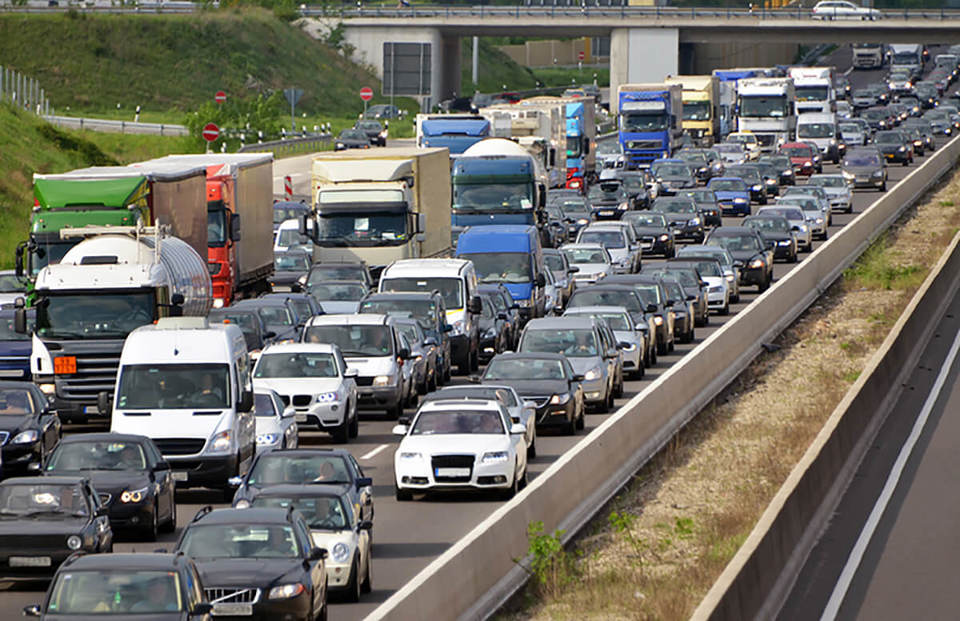The sale of all new, conventionally powered cars and vans should end by 2035, if Government targets are to be achieved.
That’s the message from the Committee on Climate Change (CCC) which has published a report today assessing the UK’s Clean Growth Strategy.
Required under the Climate Change Act, the strategy sets out the next steps to reduce the UK’s greenhouse gas (ghg) emissions and tackle climate change.
However, the CCC says the strategy does not go far enough. Urgent action is needed, it says, to flesh out current plans and proposals, and supplement them with additional measures, to meet the UK’s legally-binding carbon targets in the 2020s and 2030s.
The Committee’s new report, ‘An independent assessment of the UK’s Clean Growth Strategy: From ambition to action’, includes the call to end the sale of new, conventionally powered fossil fuelled cars and vans five years earlier the Government’s 2040 commitment.
The report says: “Given that it takes around 15 years for the stock of cars and vans to turn over, it may be necessary for the sales of petrol and diesel vehicles to end by 2035.
“A high uptake of ultra-low emission (i.e. plug-in and hydrogen) vehicles by 2030 (i.e. at least 60% of new sales) is required in order to keep open the possibility of 100% of new sales by 2035 and be on track to achieve this by 2040, as the Government has currently committed.”
The report says that the Government's 'Road to Zero' strategy, due in 2018, should set out: proposals for incentives for the uptake of ULEVs (e.g. extension of the grants for plug-in vehicles, until the private costs of ownership reach parity with conventional vehicles), and lay out a clear plan for public charging infrastructure.
Future requirements for conventional vehicle efficiency also need to go beyond recently announced EU proposals for emissions standards for 2025 and 2030, which are not ambitious enough, it says.
Furthermore, it says that measures need to be introduced to incentivise freight operators to improve logistics efficiency and shift to less carbon-intensive modes, and to increase uptake of eco-driving training and fuel-saving technologies for HGVs where cost-effective.
In its assessment, the CCC does acknowledge that the UK has made good progress in reducing ghg emissions since the Climate Change Act was passed in 2008, almost 10 years ago. Emissions fell by 42% from 1990 to 2016 – faster than the average rate of reduction in the G7.
The Clean Growth Strategy commits to delivering further action towards meeting the fourth (2023-27) and fifth (2028-32) carbon budgets, on the path to reducing UK emissions by at least 80% in 2050 compared to 1990 levels.
The strategy also reaffirms the UK’s desire to remain at the forefront of tackling climate change globally. This makes it all the more important for UK carbon budgets to be met through actions to reduce emissions domestically, the basis on which they were originally set, it says.
To help achieve these targets, the CCC is also recommending that the Government: improve the energy efficiency standards of new buildings; phase out installation of the most polluting fossil fuel heating in homes and businesses; and generate 85% of the UK’s electricity from low-carbon sources by 2032.
In addition, it wants the Government to improve the energy efficiency of UK businesses and industry by 2030; and deploy carbon capture and storage technology at scale in the UK in the 2030s.
All of these policies, amongst other actions, will have to be delivered in full and on time in order to realise the required emissions savings, it says.
Chairman of the CCC, Lord Deben, said: “The Clean Growth Strategy is ambitious in its aims to build a thriving low-carbon Britain but ambitions alone are not enough. As it stands, the strategy does not deliver enough action to meet the UK’s emissions targets in the 2020s and 2030s.
"The Government’s policies and proposals will need to be firmed up as a matter of urgency – and supplemented with additional measures – if the UK is to deliver on its legal commitments and secure its position as an international climate change leader.”
The Committee on Climate Change (the CCC) is an independent, statutory body established under the Climate Change Act 2008.
Its purpose is to advise the UK Government and devolved administrations on emissions targets and report to Parliament on progress made in reducing greenhouse gas emissions and preparing for climate change.





















Login to comment
Comments
No comments have been made yet.